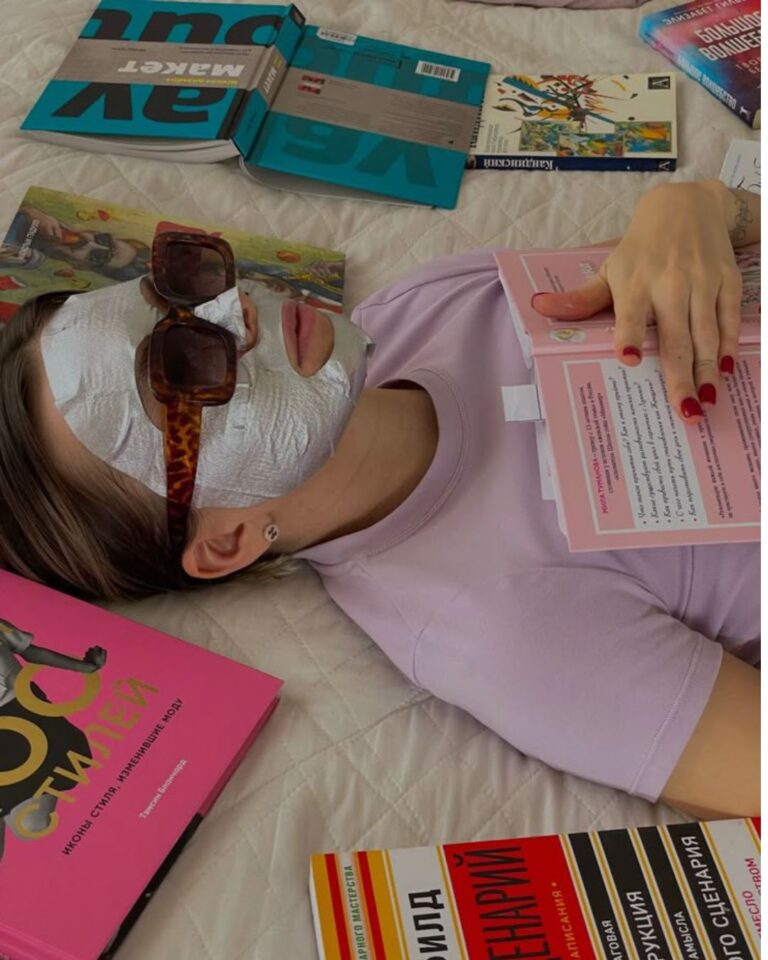Is Your Brain Just Another Social Media Prop?

Almost all of our behavior is driven by “what’s in?” Instagram is the place where we decide that, all the trends start here, and now we’re flexing intelligence?
Like, can we just chill? The flex list is longer than our attention span.
We basically flex our life here. Living the IT life, flexing money, wealth, lifestyle, big mansions, and a walk-in wardrobe are not just materialistic things but also friendships, relationships, and health. Well, the list is never-ending and it looks like we will start adding newer things to the list instead of reducing a few flex’s.
And we did, we have a new item to flex about which everyone owns but not everyone can flex about. That is your brain. Yes, you read that right.
Confused? Let us explain.
We have reached the point where we now show off our intelligence, our brains and how much knowledge we have about a subject. To put it in simpler and relatable words, have you come across Instagram feeds filled with pictures of books, people playing chess and all the other pictures that scream intelligent? If yes, then you get it.
The Rise of Intellectual Aesthetic
We have moved beyond just flaunting fashion or extravagant vacations on social media. Now, it’s about showing off a well-stocked bookshelf, a deep-cut philosophical quote, attending art museums, attending lectures (including virtual), independent film screaming, or a coffee-stained notebook filled with profound musings. The modern intellectual flex is subtle yet powerful—like posting a picture of a chessboard without context or casually mentioning The Brothers Karamazov in a caption.

And let’s not forget the rise of dark academia—a whole aesthetic dedicated to romanticizing intelligence. Think dimly lit libraries, vintage suits, and an air of melancholy that whispers, I contemplate life’s deepest questions daily.
Performance vs. Passion
But here’s the question: Is this genuine intellectual curiosity or just another carefully crafted persona? Are we seeing a rise in intelligence or just a rise in people wanting to appear intelligent?
There’s nothing wrong with sharing your love for books, art, or philosophy online. In fact, it’s great if social media inspires more people to engage in intellectual pursuits. But when intelligence becomes a performative act, does it lose its essence? When reading is done for the sake of an aesthetic rather than understanding, is it still meaningful?
Is Intelligence Being Commodified for Likes and Engagement?
With the rise of social media personalities branding themselves as thinkers, intelligence has become marketable. Online book clubs, aesthetic study vlogs, and literary influencers have turned intellectualism into a lifestyle. But is this commodification encouraging real learning, or is it just another way to generate engagement? It pressurizes the viewers to gain knowledge. Such content creates a persona that knowledge should be gained in such a way or if you’re not showing off your intelligence in a particular way, you may not be considered according to Instagram standards.
The Smartest Flex?
Perhaps the real flex isn’t posting about how much you know, but actually knowing. True intelligence isn’t measured in curated content but in curiosity, critical thinking, and meaningful discussions—whether or not they ever make it to Instagram.
Gender and the Performance of Intelligence
How intelligence is perceived and performed can vary by gender. Women, in particular, often feel the need to prove their intellectual credibility in a way that men may not. The literary IT girl aesthetic—curated bookshelves, poetic captions, candlelit study sessions—turns intelligence into something soft, artistic, and visually pleasing.

Meanwhile, men who flex intelligence often do so through debate culture, technical mastery, or intellectual dominance. These gendered nuances shape how intelligence is displayed and consumed on social media.
Literary IT Girls: When Books Become a Status Symbol
The rise of the literary IT girl is a prime example of how intellectualism is being aestheticized. These influencers flood their feeds with artfully arranged books, handwritten poetry, and café-side reading shots. Writing is no longer just a craft—it’s a curated experience, and being a highbrow writercomes with an Instagrammable image. But does this make literature more accessible, or does it turn reading into just another status symbol?

Reading as an Aesthetic?
Books, once a private intellectual pursuit, are now part of a public persona. Whether it’s annotating classic novels in perfect calligraphy or posting deep literary quotes, reading has become an aesthetic choice. While this trend can encourage more people to engage with literature, it also raises the question: are we appreciating books for their content or their aesthetic appeal?
Recently, I went to a book cafe near my university with a few of my friends. For us, it was supposed to be a peaceful gateway. An escape from the chaos of assignments, work and other college dramas. As we sat down with our books we saw a couple clicking each other’s pictures in front of a book shelf with a book in their hand. Now, it’s completely okay to post about your outing even if it’s a simple cafe but spending more than half of your time in getting one perfect picture rather than actually reading the book is where it feels off.
It made me realise how easily we fall for trends, even though we may or may not be fond of them. However, to fit in the ever-changing image of Instagram we do follow these trends

Intelligence as More Than Just a Trend
Despite its performative aspects, intellectual flexing isn’t inherently bad. If social media inspires more people to engage with philosophy, literature, or art, that’s a positive shift. While some may approach it superficially, exposure to intellectual content can spark genuine curiosity and lead to deeper exploration. A viral post of an insightful discussion on a philosophical concept might encourage someone to pick up a book they never would have considered otherwise. It would encourage people to find answers to their curiosity on their own, which is an amazing skill to develop.
Furthermore, making intelligence more visible and aspirational helps break down stereotypes about learning being dull or exclusive. If intelligence becomes something people aspire to, it may lead to more inclusive and diverse conversations, fostering a culture that values knowledge and critical thinking.
Intelligence as a trend is both a positive and a paradox. On one hand, social media has made intellectual pursuits more visible and appealing. On the other, the pressure to look intelligent can sometimes overshadow the pursuit of real knowledge. Perhaps the ultimate flex isn’t just appearing smart—but actually being smart, whether or not the world is watching.
So, the next time you scroll past a picture of a leather-bound classic alongside an oat milk latte, ask yourself: Is this intelligence or merely another trend?
Thanks for reading, fr! Share if you like it enough. Follow us on Instagram & LinkedIn for more.


